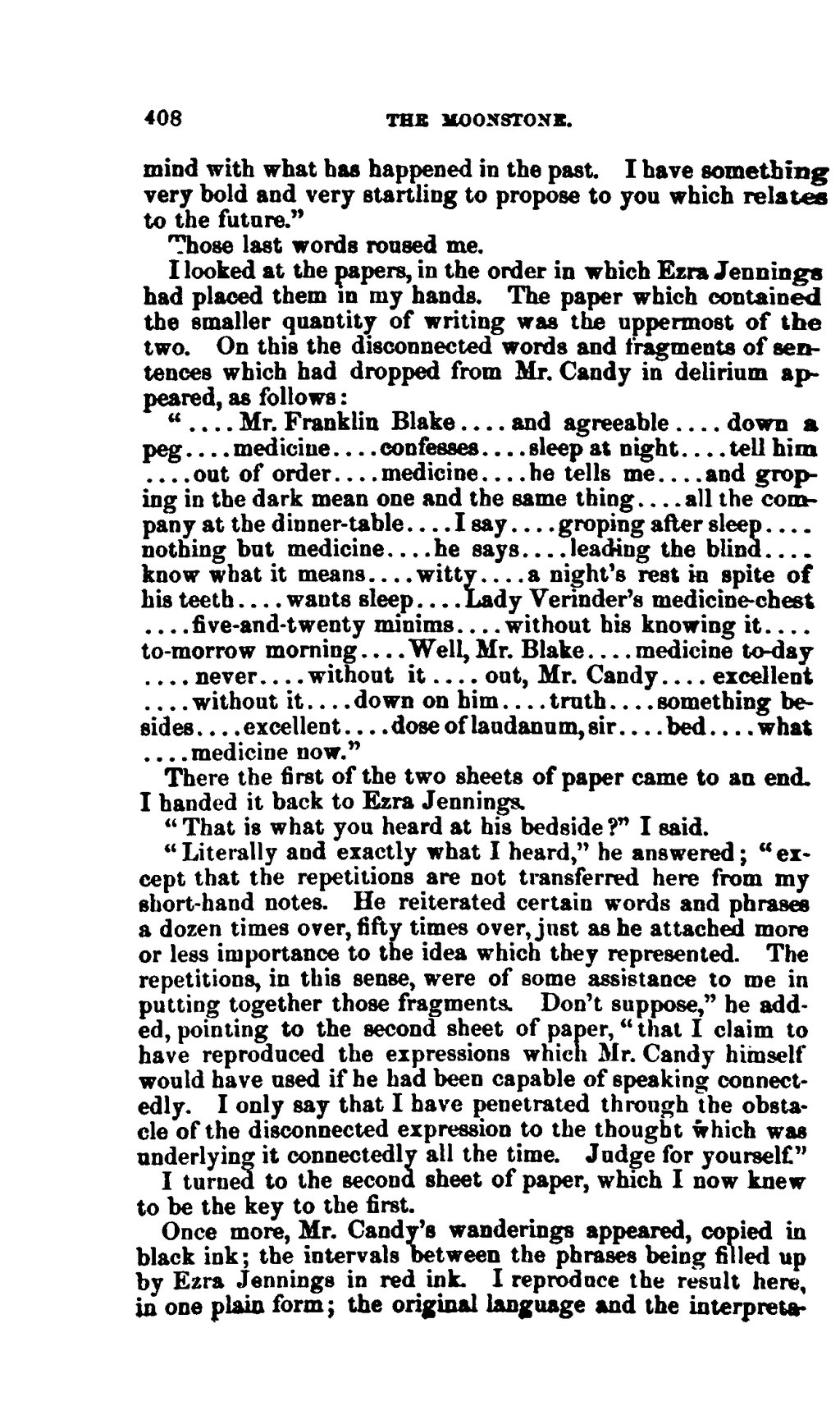mind with what has happened in the past. I have something very bold and very startling to propose to you, which relates to the future."
Those last words roused me.
I looked at the papers, in the order in which Ezra Jennings had placed them in my hands. The paper which contained the smaller quantity of writing was the uppermost of the two. On this, the disconnected words, and fragments of sentences, which had dropped from Mr. Candy in his delirium, appeared as follows:
"... Mr. Franklin Blake ... and agreeable ... down a peg ... medicine ... confesses ... sleep at night ... tell him ... out of order ... medicine ... he tells me ... and groping in the dark mean one and the same thing ... all the company at the dinner-table ... I say ... groping after sleep ... nothing but medicine ... he says ... leading the blind ... know what it means ... witty ... a night's rest in spite of his teeth ... wants sleep ... Lady Verinder's medicine-chest ... five-and-twenty minims ... without his knowing it ... to-morrow morning ... Well, Mr. Blake ... medicine to-day ... never ... without it ... out, Mr. Candy ... excellent ... without it ... down on him ... truth ... something besides ... excellent ... dose of laudanum, sir ... bed ... what ... medicine now."
There, the first of the two sheets of paper came to an end. I handed it back to Ezra Jennings.
"That is what you heard at his bedside?" I said.
"Literally and exactly what I heard," he answered—"except that the repetitions are not transferred here from my short-hand notes. He reiterated certain words and phrases a dozen times over, fifty times over, just as he attached more or less importance to the idea which they represented. The repetitions, in this sense, were of some assistance to me in putting together those fragments. Don't suppose," he added, pointing to the second sheet of paper, "that I claim to have reproduced the expressions which Mr. Candy himself would have used if he had been capable of speaking connectedly. I only say that I have penetrated through the obstacle of the disconnected expression, to the thought which was underlying it connectedly all the time. Judge for yourself."
I turned to the second sheet of paper, which I now knew to be the key to the first.
Once more, Mr. Candy's wanderings appeared, copied in black ink; the intervals between the phrases being filled up by Ezra Jennings in red ink. I reproduce the result here, in one plain form; the original language and the interpreta-

